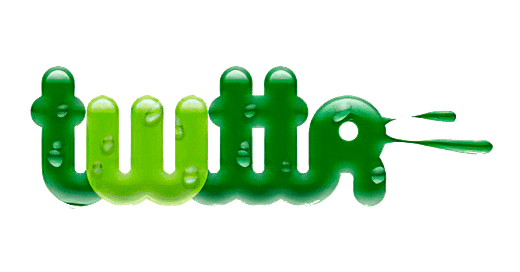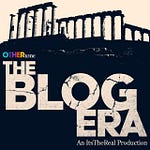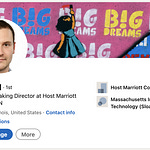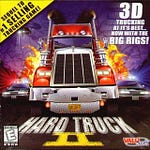I’ve tried my absolute best to avoid writing about Twitter, in part because I don’t want to give myself whiplash because I paid attention to the day-to-day tomfoolery happening on the platform. And because everybody now has an opinion on Twitter. It’s amazing. A rich guy buys it and now people who’ve never used it are espousing thoughts on what it means for free speech and being concerned about bots.
To that I say: no thanks! I’d rather go listen to my favorite podcast that reviews chain restaurants or the new one my friends Jeff and Eric (aka ItsTheReal) started about air travel, airports, and airlines.
But Elon buying Twitter is important. And I do have some opinions. I’ll keep them at a higher altitude instead of covering:
How the platform is now devoid of misinformation experts, anti-propaganda teams, engineering talent, and employees who criticize him
Elon’s strange, continued sharing of imagery from the very, very bad guys from 20th century world wars
Elon re-platforming tens of thousands of QAnon, conspiracy theory, and right wing accounts that were banned after Jan. 6
China state-sponsored porn-sharing spam bots overwhelming the legit conversations/info about the recent anti-lockdown protests
The fact that Twitter is an advertising platform, making 90% of its revenue through ad sales, which are now absolutely cratering
The new Twitter owner (sorry, I have to try some new ways to say “Elon”) trying to bully advertisers into spending money on the platform, a tactic that’s notoriously successful
That the famous entrepreneur and now head of Twitter (again, gotta switch up the name) just loves to welcome Nazis to participate in the conversation. Oh, wait, looks like if you’re effusive and public enough in your praise of Hitler, the bossman will step in after all.
So: in some other instance of a platform takeover like this, you might be able to divorce the public actions of its leader from what could happen with the platform itself. Like, hey, the CEO is saying some wild ass things but the developers, engineering and decision making talent will actually be driving the evolution of the platform. But that’s not what this is. This is Elon’s show, company, and it’s how he wants it.
But anyways. My point of view is this: what happens in the end and what ends up being successful is in how you define success. My view of Twitter’s “success” is quantitative and qualitative. Here are some of the questions I would ask to figure that out, with the starting point being this year, when the takeover happened:
Has the platform fostered a more open space for conversation?
To the first question, has the platform improved mechanisms to prevent mis/disinformation, coordinated attacks and inauthentic activity, spam, scams, bullying, harassment?
Has the platform enabled a better flow of quality information?
Is the platform growing—in conversation volume, active users, and revenue—sustainably?
Those questions seem reasonable to me. More business-minded folks might go right to the heart of whether it makes more money and continues to do that. I would argue that the questions I highlighted above would be great indicators of a financially successful platform.
Now, when social platforms go public, they’re all of a sudden beholden to a different set of standards set by boards and shareholders. They need to make more money and acquire more users, quarter-over-quarter. And so they optimize their platforms to deliver on that. In an attention economy, that means creating mechanisms to keep people refreshing, sharing and resharing content, and consuming more.
That dynamic has created some pretty perverse incentives, where inflammatory content and extremism ultimately generate those results. People get mad online and let others know about it. But at least we get some peek behind the curtain when the platforms do their public quarterly earnings reports. We learn of daily active users, time spent on the platform, revenue, etc.
In theory, taking Twitter private could reset some of those out-of-whack incentives. But my fear is that Twitter’s privatization—and the person who now controls it—will make information about the platform more opaque. Elon doesn’t have to report anything! And can spin things much more than a public company could! So communicating the true “health” of the platform will be in his hands, and his hands alone.
Let’s take a step back though. Ignore the questions of platform health and sustainable growth. Remember that Elon bought Twitter for $44 billion, a wildly inflated valuation that he admits was way too much. He wasn’t bidding against anybody! There was no competition that warranted a price like that!
And remember that he tried so damn hard to get out of the deal, which came across as a joke to begin with (buying it at a share price of $54.20 ha ha ha). And that he was eventually forced to buy it. And that Twitter is and advertising business, securing about 90% of its revenue from ads (and we’ve already covered how that appears to be cratering and brand advertisers are running, since his acquisition). And that Twitter users are the product and that it’s a communication platform rooted in human, social dynamics and not manufacturing solutions or engineering.
Does any of that scream “this will definitely work?”
Can someone point me to a B-school case study of an 11-figure acquisition where the buyer paid potentially double what a business was worth (for no sound reason), tried desperately to back out, then was forced to buy it, before turning it into a thriving success and ultimately a good investment?
I will happily eat my shirt if my prognosis is wrong and the best parts of Twitter continue to positively evolve and the worst parts get better; if, instead of going bankrupt, Twitter emerges as a financial powerhouse; if Twitter—for all of its faults, and there are a lot!—becomes a more important and vital part of society, current events, and our collective information ecosystem. (Sidenote: I don’t actually think it’s healthy for individual, centralized platforms to have that much importance but it’s the situation we’re in.)


Until then, however, my shirt will remain uneaten. I will try to avoid staring at the car crash for too long. I do wish my Twitter career had taken off though, given that I’ve spent 15 years—half my life! (don’t look it up)—on the platform.
Maybe I should double-down on Substack, which is surely above the fra—oh wait. Substack is trash, too? So the only way to safely be on a platform is to actually just own your platform?
Maybe the real solution is a news letter. Written on a typewriter. Delivered by your neighborhood mailperson. My version of “send tweet” is dropping envelopes into a mailbox. Every month, I’ll hit you with a DM—direct mail.
Let me know if you’re in.













Share this post